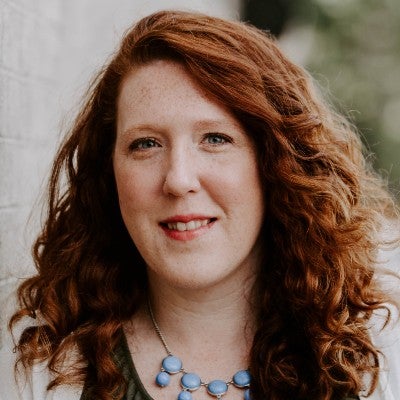A home insurance lapse is when your coverage expires or the insurer cancels it, and you don’t have a new policy in place. A lapse of coverage may occur for several reasons, including failure to pay your premium or secure a new policy after receiving a cancellation or nonrenewal notice.
Understanding the consequences of an insurance lapse, what to do if it happens, and how to prevent lapses can help you take the appropriate actions to protect your home and assets.
What happens if my homeowners insurance lapses?
Regardless of why you experience a lapse in coverage, it can have significant negative consequences, including the following:
You’ll pay out of pocket for damages and losses
Once your policy lapses, you lose the valuable protections home insurance offers. That includes coverage for the structure of your home and your personal property. As such, if you experience an issue typically covered by home insurance, such as a fire or theft, your insurer is not obligated to pay the claim. You’ll need to pay for repairs or property replacements out of pocket.
You’ll also lose personal liability insurance, which would otherwise provide financial protection if someone is injured on your property or you (or a family member) accidentally damage their property.
Though costs may be manageable for minor damage, significant repairs or rebuilding your home without the help of home insurance can cost thousands of dollars. The same applies to costly medical bills and potential legal fees if you’re sued after someone is injured on your property.
Your premiums may increase
After a lapse in coverage, you may see higher insurance rates when you purchase a new policy.
Insurers set rates based on risk, and a lapse can raise a red flag. For instance, if you experience a lapse because you failed to pay your premiums and your insurer canceled your insurance policy, other companies may see you as a financial liability and price your new policy accordingly.
It may be harder to find coverage
It’s unlikely that a single lapse will make finding coverage impossible, but the process may be more challenging.
Since insurance companies tend to see coverage lapses as an indication of risk, you may have difficulty securing a new policy after a lapse. In some cases, a lapse in coverage may automatically disqualify you from coverage based on the insurer’s underwriting guidelines.
A lapse can also lead to policy denials if combined with other high-risk activities, such as a series of recent claims on your record.
That’s not to suggest you’ll never find coverage, but it may be more challenging and costly in the long run.
Your lender may buy expensive coverage for you
If you have a mortgage, your lender will likely require you to carry home insurance until you pay off your loan. If you have a lapse in coverage and don’t get a new policy, you may find that your lender does it for you.
After a lapse in coverage, your lender typically has the right to get force-placed insurance for your home. Unfortunately, these policies usually only offer basic coverage but cost more than a standard home insurance policy you could purchase independently.
Once they purchase the policy, the new premium will be added to monthly mortgage payments.
Reasons for home insurance lapses
Insurance can lapse for several reasons. Here are some of the most common:
-
You don’t pay your premiums. If you miss a premium payment, your insurer may cancel your coverage. Some insurers offer a grace period, but that’s not always the case. If you miss a payment, contact your insurer immediately to determine next steps. You may be able to reinstate your policy if you act quickly.
-
You missed a notice of nonrenewal. If your insurer decides not to renew your policy when the term ends, it must send you a nonrenewal notice. Even if you miss that notice, your coverage will end when your policy term expires.
-
You missed a cancellation notice. In some cases, such as non-payment, your insurer can cancel your policy before the end of the term. Insurers must send notice of a cancellation, but if you miss that letter and don’t purchase a new policy, you’ll have a coverage lapse.
-
You canceled your old policy before a new one started. If you’re buying a new policy, make sure it begins on or before the date your old policy is set to expire. If the new policy starts after your old one expires, you’ll experience a period of lapsed coverage.
How to avoid an insurance lapse
One of the best ways to avoid a lapse in coverage is to pay your insurance premiums on time. Non-payment puts you at risk of cancellation, which can lead to an insurance lapse and potentially higher premiums in the future.
Here are some additional tips to help you avoid a lapse:
-
Take note of payment due dates as soon as you purchase a policy or when your policy renews.
-
Set up repeating calendar reminders to keep your payment practices on track.
-
If possible, choose automatic payments to avoid any memory mishaps.
-
Make sure there are enough funds in your account to cover your premium payment.
-
Always read insurance communications, which may alert you to policy changes, nonrenewals, or cancellations.
-
Take note of the email address you used to purchase coverage and ensure you receive communications from the insurer to that account.
-
Contact your insurer immediately after a missed payment so you can resolve the issue.
-
Use an escrow account to pay your insurance if you have a mortgage.
How to get homeowners insurance after a lapse in coverage
As soon as you know of a lapse in coverage, take action immediately. The first thing you should do is contact your existing home insurance provider. Depending on the insurer and the circumstances that led to the lapse, they may be willing to reinstate your policy.
If your insurer doesn’t reinstate your policy, follow these steps:
- Get quotes from several home insurance companies. Time is of the essence, but you can often get home insurance quotes online in a few minutes. You can use the declarations page from your lapsed policy to help you determine how much coverage you may need.
-
Compare quotes. Once you get quotes, compare rates, coverages, and other features, such as policy endorsements, payment options, and online resources. To further narrow your choices, check insurer reviews and each provider's financial strength as graded by companies like AM Best and Demotech, Inc. Remember that many insurers have a waiting period, so if your priority is to get coverage as soon as possible, you may want to consider that as a factor when comparing insurers.
-
Purchase your policy with an immediate start date. Once you find the right insurer, complete the purchase process and select the soonest effective date.
-
Notify your lender. If you have a mortgage, contact your lender to let them know that you have a policy in place. They will likely request proof of coverage, which you can often provide by sending a copy of your policy declaration page.





